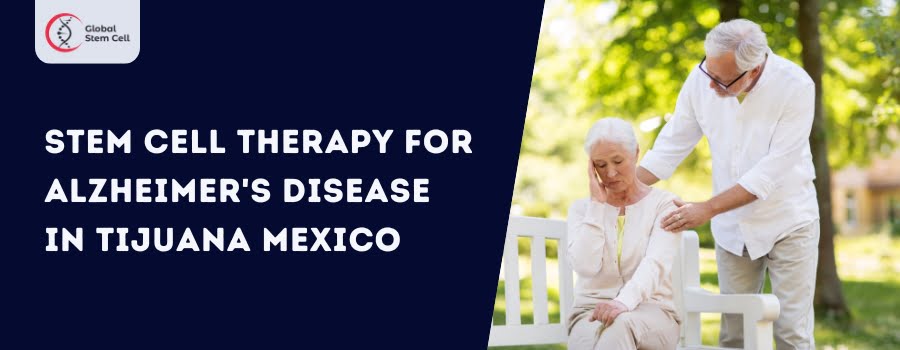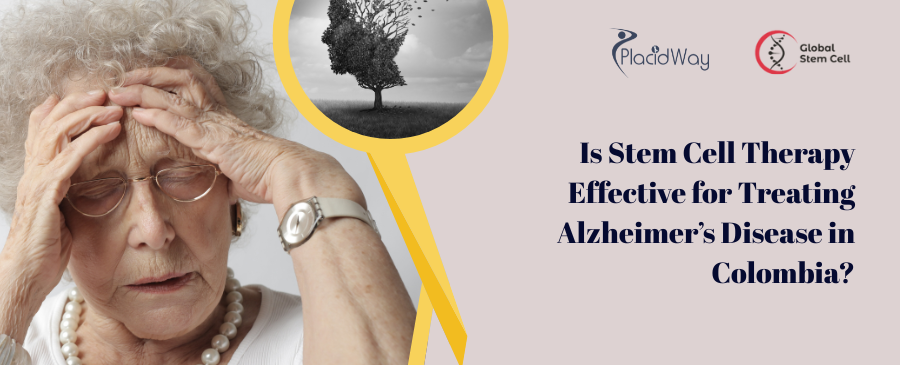
Alzheimer’s disease is a debilitating condition that affects millions of people worldwide. It is a progressive neurodegenerative disorder that primarily affects memory and cognitive function. Over the years, various treatment options have been explored, and one emerging therapy that shows promise is stem cell therapy.
In this article, we will delve into the details of stem cell therapy for Alzheimer’s disease and how it is being used in Tijuana.
Tabel de conținut
Understanding Alzheimer’s Disease
Alzheimer’s disease is a brain disorder that gradually worsens over time. It is characterized by changes in the brain that lead to the accumulation of certain proteins. Here are some key points about Alzheimer’s:
Simptome: Alzheimer’s affects memory, thinking, and behavior. As the disease progresses, symptoms interfere with daily tasks. Early signs include memory loss, misplacing items, and repeating questions. Later stages may involve confusion, disorientation, and difficulty with speech.
Cauze: Alzheimer’s causes shrinkage (atrophy) of the posterior part of the brain. Affected brain tissue contains amyloid plaques (abnormal protein deposits) that damage brain cells. Neurofibrillary tangles, twisted tau protein threads, also contribute to cell death. Risk factors include age, family history, genetics, and head injuries.
Diagnosticul: Diagnosing Alzheimer’s involves a thorough medical evaluation, including physical and neurological examinations, blood tests, CT scans, MRI scans, EEG, and PET scans. These help assess brain function and rule out other conditions.
How Does Stem Cell Therapy Work for Alzheimer’s Disease?
Stem cell therapy for Alzheimer’s disease is an experimental treatment aimed at harnessing the regenerative potential of stem cells to repair or replace damaged brain cells and improve cognitive function. Here’s a simplified overview of how it works:
- Source of Stem Cells: Stem cells can be derived from various sources, including embryonic tissue, adult tissues (such as bone marrow or adipose tissue), or induced pluripotent stem cells (iPSCs), which are adult cells reprogrammed to behave like embryonic stem cells.
- Differentiation into Neuronal Cells: Stem cells are cultured and manipulated in the laboratory to differentiate into neural progenitor cells or mature neurons. These cells have the potential to replace lost or damaged neurons in the brain.
- Delivery into the Brain: Once the stem cells have differentiated into the desired cell type, they are transplanted into the brain. This can be done through various methods, such as direct injection into the brain tissue or through the bloodstream, where they can cross the blood-brain barrier.
- Integration and Functionality: The transplanted cells need to integrate into the existing brain tissue and establish functional connections with surrounding neurons. This integration process is crucial for the cells to effectively perform their intended functions, such as secreting neurotrophic factors, promoting neurogenesis, and modulating inflammation.
- Neuroprotective Effects: Stem cells can also exert neuroprotective effects by secreting factors that promote the survival of existing neurons and inhibit harmful processes like inflammation and oxidative stress, which are implicated in the progression of Alzheimer’s disease.
- Monitorizare și urmărire: Patients undergoing stem cell therapy for Alzheimer’s disease typically undergo regular monitoring to assess their cognitive function, as well as imaging studies to evaluate the integration and survival of the transplanted cells in the brain.
The Benefits of Stem Cell Therapy for Alzheimer’s Disease
Stem cell therapy for Alzheimer’s disease holds the potential for several benefits, although it’s still in the early stages of research and development. Here are some potential benefits:
- Neuroregeneration: Stem cells have the ability to differentiate into various cell types, including neurons. By transplanting stem cells into the brain, there is the potential for these cells to replace lost or damaged neurons, contributing to the regeneration of brain tissue and potentially improving cognitive function.
- Neuroprotection: Stem cells can secrete neurotrophic factors and other molecules that promote the survival of existing neurons and protect them from damage. This neuroprotective effect may slow down the progression of Alzheimer’s disease and preserve cognitive function.
- Modulation of Inflammation: Inflammation plays a significant role in the progression of Alzheimer’s disease. Stem cells have the ability to modulate the inflammatory response in the brain, potentially reducing inflammation and its detrimental effects on neurons.
- Enhancement of Brain Repair Mechanisms: Stem cells can stimulate endogenous repair mechanisms in the brain, such as neurogenesis (the generation of new neurons) and synaptogenesis (the formation of new connections between neurons). These processes may help to restore neural circuitry and improve cognitive function.
- Potential Disease-Modifying Effects: Unlike many currently available treatments for Alzheimer’s disease, which primarily target symptoms, stem cell therapy has the potential to address underlying disease pathology by targeting the loss of neurons and synaptic dysfunction.
- Personalized Medicine Approach: Stem cell therapy can potentially be tailored to individual patients, taking into account factors such as disease stage, genetic background, and other medical conditions. This personalized approach may enhance treatment efficacy and reduce the risk of adverse effects.
- Minimal Invasive Procedures: Depending on the delivery method, stem cell therapy for Alzheimer’s disease may involve minimally invasive procedures, such as injections or infusions, which could reduce the risk and recovery time associated with more invasive surgical interventions.
Stem Cell Therapy for Alzheimer’s Disease in Tijuana
Stem cell therapy for Alzheimer’s disease, like other forms of medical treatment, is subject to regulations and ethical considerations that vary by country. Tijuana, located in Mexico, has been known for offering alternative medical treatments, including some forms of stem cell therapy. However, it’s essential to approach any treatment, including stem cell therapy, with caution and thorough research.
Here are some key points to consider regarding stem cell therapy for Alzheimer’s disease in Tijuana or any other location:
- Regulatory Environment: Mexico may have different regulatory standards for stem cell therapy compared to countries like the United States or European Union. It’s important to understand the regulations governing stem cell treatments in Mexico and to ensure that the clinic or facility offering the treatment adheres to appropriate ethical and safety standards.
- Research and Evidence: Evaluate the scientific evidence supporting the use of stem cell therapy for Alzheimer’s disease. While some preclinical studies and early clinical trials show promise, more research is needed to establish the safety and efficacy of stem cell therapy for this condition.
- Clinic Reputation and Credentials: Research the clinic or facility offering stem cell therapy in Tijuana. Look for information on the qualifications and experience of the medical professionals involved, as well as any certifications or accreditations the clinic may have. Patient reviews and testimonials can also provide insight into the clinic’s reputation.
- Treatment Approach and Risks: Understand the specific approach to stem cell therapy being offered for Alzheimer’s disease, including the source of stem cells, the delivery method, and the potential risks and side effects associated with the treatment. Consult with medical professionals and seek independent advice to weigh the potential benefits against the risks.
- Cost and Financial Considerations: Stem cell therapy, particularly when offered as an alternative or experimental treatment, can be expensive. Consider the financial implications of undergoing treatment in Tijuana, including travel expenses, accommodation, and the cost of the treatment itself. Ensure that you fully understand the pricing structure and any additional fees involved.
- Informed Decision-Making: Make an informed decision about pursuing stem cell therapy for Alzheimer’s disease, weighing the available evidence, potential benefits, risks, and alternatives. Consult with your primary healthcare provider and specialists familiar with Alzheimer’s disease to discuss your options and develop a comprehensive treatment plan.
Cele mai bune clinici de terapie cu celule stem în Tijuana Mexico
Here, we delve into some of the leading clinics pioneering stem cell therapy for Alzheimer’s in Tijuana.
Regenerative Medicine by ITC – Immunity Therapy Center
Regenerative Medicine by ITC, situated in Tijuana, Mexico, stands at the forefront of innovative healthcare solutions. With a dedicated focus on regenerative therapies, including stem cell treatment, they offer a beacon of hope for Alzheimer’s patients.
Their approach combines cutting-edge research with personalized care, aiming to address the root causes of Alzheimer’s disease and promote neural regeneration. Under the guidance of experienced medical professionals, patients receive comprehensive evaluations and tailored treatment plans to optimize therapeutic outcomes.
Progencell, nestled in the heart of Tijuana, Mexico, is synonymous with excellence in regenerative medicine. Specializing in stem cell therapies for a range of conditions, including Alzheimer’s disease, Progencell offers a beacon of hope for patients seeking alternative treatments.
Their team of experts employs state-of-the-art techniques to harness the regenerative potential of stem cells, aiming to halt disease progression and restore cognitive function. With a focus on safety, efficacy, and compassionate care, Progencell stands as a trusted destination for individuals battling Alzheimer’s.
The Importance of Choosing a Reputable Clinic
When considering stem cell therapy for conditions like Alzheimer’s disease, choosing the right clinic is paramount. Here’s why opting for a reputable clinic matters:
- Expertise and Experience: Reputable clinics are staffed with experienced medical professionals who specialize in stem cell therapy. They possess the knowledge and skills necessary to provide safe and effective treatment, ensuring optimal outcomes for patients.
- Safety Standards: Established clinics adhere to strict safety standards and regulations governing stem cell therapy. They maintain rigorous protocols for cell processing, transplantation procedures, and patient monitoring to minimize risks and complications.
- Quality of Care: Reputable clinics prioritize the well-being of their patients, providing comprehensive care from initial consultation to post-treatment follow-up. They offer personalized treatment plans tailored to each patient’s unique needs, ensuring a holistic approach to healthcare.
- Transparency and Ethics: Trustworthy clinics operate with transparency and integrity, providing clear information about treatment options, potential risks, and expected outcomes. They adhere to ethical guidelines and informed consent practices, empowering patients to make informed decisions about their healthcare.
- Istoric de succes: Established clinics have a track record of success in treating patients with stem cell therapy. They may have published research studies, testimonials from satisfied patients, and partnerships with reputable organizations, demonstrating their credibility and effectiveness.
Ready to take the next step towards innovative stem cell therapy for Alzheimer’s disease? Choose a reputable clinic today and move on your journey to renewed hope and improved quality of life. Contact us now to schedule a consultation and learn more about our personalized treatment options. Your path to better health starts here.





